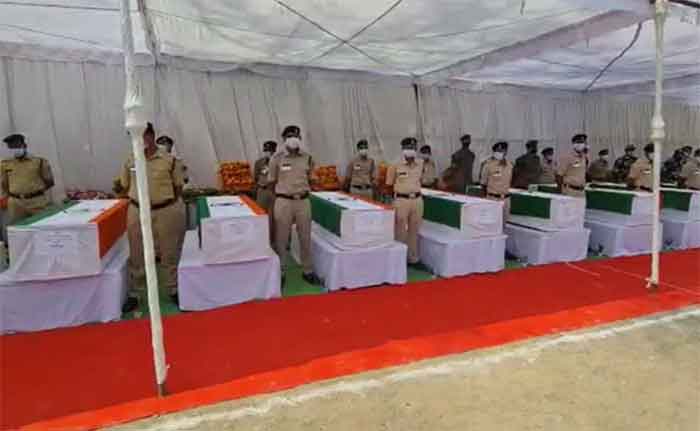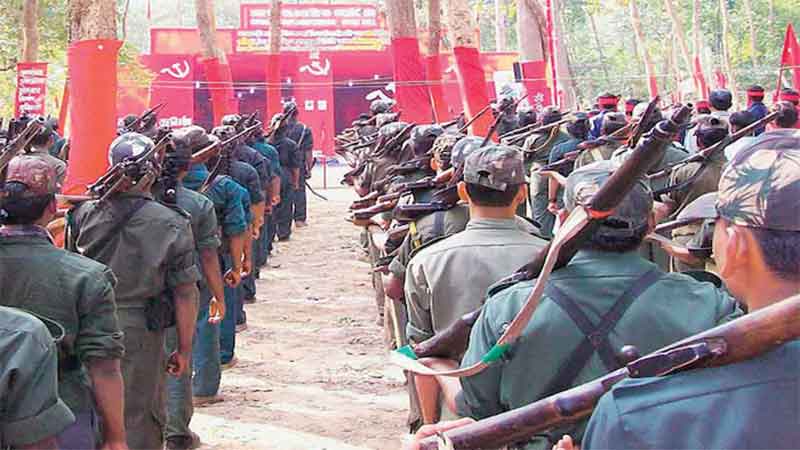
India’s Maoist insurgency, often described as the country’s longest-running internal security challenge, has left a trail of violence, mistrust, and underdevelopment across several states. While the state has responded with a combination of security operations and developmental schemes, the time has come to earnestly consider a more comprehensive and humane approach—one that places dialogue and strategic arms withdrawal at its core.
Ending Violence and Saving Lives
The most immediate and compelling reason to initiate dialogue with Maoist groups is the potential to end violence and save lives. Security personnel, civilians, and even the insurgents themselves are caught in a seemingly endless cycle of conflict. A cessation of hostilities, however temporary at first, could offer respite and create space for rebuilding shattered communities.
Addressing the Root Causes
The origins of the Maoist movement lie in deeply rooted socio-economic grievances—poverty, land alienation, lack of access to justice, and exploitation of tribal populations. These are not issues that can be solved through force alone. Dialogue opens a channel for articulating these grievances and discussing long-term, structural solutions. Linking arms withdrawal to tangible commitments for development and rights-based governance could be a strategic way forward.
Pathway to Peace and Normalcy
Dialogue offers a potential roadmap to restoring normalcy in regions long affected by conflict. It could pave the way for democratic governance, investment in infrastructure, access to education and health, and a sense of inclusion among marginalized communities. When people are assured of dignity and opportunity, the appeal of armed struggle naturally diminishes.
Upholding Democratic Principles
India, as the world’s largest democracy, must not shy away from dialogue—even with those who have taken up arms against the state. When military solutions alone prove unsustainable, negotiation becomes not just an option, but a democratic imperative. History has shown that even the most complex conflicts can be resolved through meaningful engagement, provided both sides are committed to peace.
Rehabilitation and Reintegration
Dialogue could lead to the surrender and rehabilitation of Maoist cadres. Providing them with a second chance to lead peaceful and productive lives is not only a moral obligation but a strategic necessity. Rehabilitation programs coupled with skill development and reintegration efforts could help these individuals transition from insurgents to citizens.
Resource Reallocation for Development
Resources currently deployed in massive security operations can be redirected to welfare and development initiatives. These could include building roads, schools, and hospitals, ensuring food security, and creating employment opportunities in affected regions.
The Challenges of Dialogue
While the case for dialogue is strong, there are valid concerns and challenges that must be addressed:
Trust Deficit and Historical Setbacks:
Previous peace initiatives have often failed, with accusations that Maoists used ceasefires to regroup and re-arm. This history fuels mistrust among both policymakers and the public.
Ideological Rigidities:
The Maoist ideology seeks not reform but the revolutionary overthrow of the Indian state. Their demands—such as the withdrawal of security forces and dismantling of state institutions—are often non-negotiable from the government’s perspective.
Risk of Legitimizing Violence:
Engaging in talks with a group that has used violence may be perceived as legitimizing such methods. There is also the risk of encouraging other groups to adopt armed struggle to gain attention.
Internal Fissures:
The Maoist movement is not monolithic. Multiple factions with differing agendas make it difficult to reach or enforce a unified settlement.
Security and Operational Concerns:
Halting operations even temporarily can compromise intelligence gathering, endanger security personnel, and create opportunities for Maoist regrouping.
Ambiguity in Arms Withdrawal:
What constitutes arms withdrawal? Is it unconditional surrender or phased disarmament? These details are contentious and must be clearly negotiated.
Political and Public Will:
Strong political will is essential. Major Maoist attacks can inflame public opinion, making dialogue appear as weakness. The government must balance public sentiment with strategic foresight.
Key Considerations for a Constructive Dialogue
To make dialogue viable and effective, certain conditions must be met:
1.Maoists should be required to renounce violence and express willingness to operate within the framework of the Indian Constitution.
2.Both parties must enter negotiations with clarity of purpose—the government seeking an end to violence and Maoists desiring justice and dignity for marginalized populations.
3.Dialogue should be one part of a broader strategy that includes sustained development, institutional reform, and targeted security measures against non-cooperating factions.
4. Any ceasefire or arms withdrawal arrangement must be subject to independent monitoring to build and maintain trust.
A Difficult but Necessary Road
The road to peace is rarely simple, especially in a conflict as protracted and complex as the Maoist insurgency. Yet, dialogue offers a sliver of hope—a chance to end bloodshed, address long-standing grievances, and reintegrate estranged communities into the fabric of the nation. With patience, political will, and a clear framework, the Indian government can open the door to lasting peace. The alternative is a continuing cycle of violence that benefits no one and hinders the progress of the very regions that need it the most.
Subscribe to Our Newsletter
Get the latest CounterCurrents updates delivered straight to your inbox.
P Vijaya Kumaraswamy Reddy is a Political analyst














































